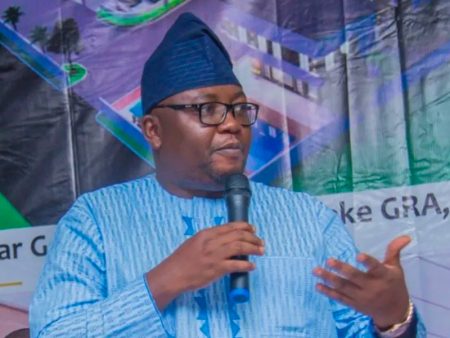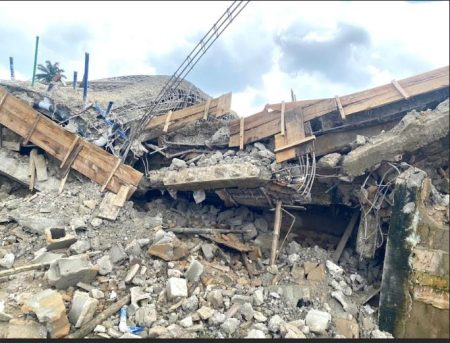The tragic demise of Nigerian boxer Segun Olanrewaju, known as “Success,” in a boxing ring in Accra, Ghana, sparked a two-month-long ordeal involving legal intricacies, diplomatic negotiations, and procedural hurdles to repatriate his body to his homeland. The Nigerian boxing community and Olanrewaju’s family endured an agonizing wait, punctuated by investigations and revelations of regulatory failures within the Ghanaian boxing authority. The President of the Nigeria Boxing Board of Control (NBBofC), Rafiu Ladipo, finally confirmed the imminent return of Olanrewaju’s remains, bringing a measure of closure to a painful chapter.
Olanrewaju’s collapse and subsequent death on March 29th, 2024, following a bout with Ghanaian boxer Jon Mbanugu at the Trust Sports Emporium Boxing Arena, cast a somber shadow over the boxing world. The incident immediately raised concerns about the safety standards and regulatory oversight within Ghana’s boxing scene. Initial grief and shock quickly transformed into demands for accountability and a thorough investigation into the circumstances surrounding the tragedy. The delay in repatriating Olanrewaju’s remains further exacerbated the emotional toll on his family and the Nigerian boxing community.
The legal and procedural requirements following a death under such circumstances presented a significant obstacle to the swift return of Olanrewaju’s body. Ghanaian authorities, including the Minister for Youth and Sports, Kofi Adams, emphasized the necessity of adhering to the coroner’s act, which mandated a comprehensive report before the body could be released. This process, while essential for establishing the facts of the case, contributed to the protracted delay and heightened the anxiety of those awaiting Olanrewaju’s return. The eventual completion of the coroner’s report paved the way for the repatriation process to commence.
A seven-member committee, appointed by the Ghanaian government and chaired by Ambassador Major (retd.) Amarkai Amarteifio, embarked on a rigorous investigation into Olanrewaju’s death. Their exhaustive inquiry involved interviews with 30 individuals connected to the event and culminated in a detailed 100-page report. The committee’s findings revealed that Olanrewaju had a pre-existing cardiovascular condition, an enlarged heart, a common occurrence amongst athletes. While this condition likely contributed to his death, the exact trigger remained unascertainable despite extensive scientific testing.
More concerning were the revelations regarding the Ghana Boxing Authority’s (GBA) operational shortcomings and their blatant disregard for fundamental safety protocols. The investigation unearthed the GBA’s lack of proper licensing and the absence of adequate medical supervision at the fateful bout. Ekow Asmah, a veteran journalist and boxing expert who served on the investigative committee, disclosed the shocking fact that the GBA operated without a designated doctor, a critical oversight that directly jeopardized the safety of boxers. Furthermore, the individual posing as a medical professional at the ringside was revealed to be an imposter, highlighting the GBA’s negligent approach to athlete safety.
The investigative committee’s recommendations included Ghana assuming full responsibility for repatriating Olanrewaju’s remains to Nigeria and covering all associated funeral and burial expenses. This gesture was seen as a demonstration of solidarity and respect for African unity in the wake of the tragedy. The NBBofC also requested a copy of the committee’s comprehensive report to gain a full understanding of the events leading to Olanrewaju’s death and to potentially implement preventative measures in the future. The incident serves as a stark reminder of the importance of stringent safety regulations and proper medical oversight in professional boxing to protect the lives and well-being of athletes.














